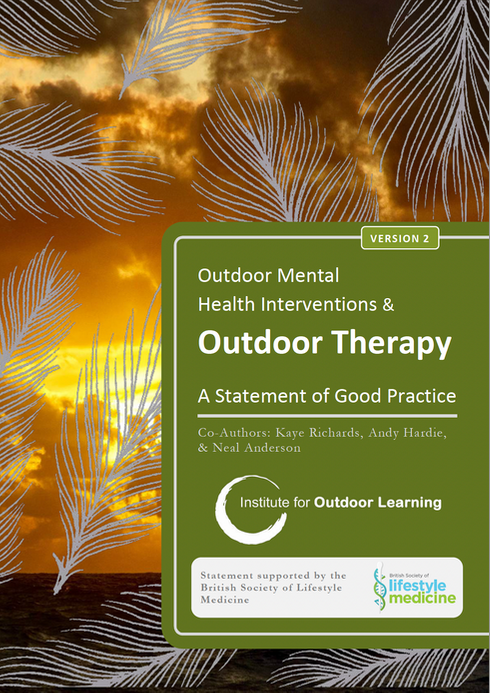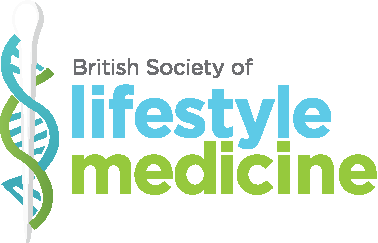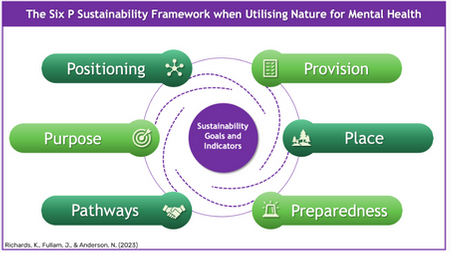Outdoor Mental Health & Outdoor Therapy
Outdoor Mental Health Interventions and Outdoor Therapy
Health, well-being and self-development has been a cornerstone of the impact and value of outdoor learning practices for many decades. Over recent years, we have seen an exponential growth in therapeutic outdoor initiatives and programmes being developed and utilised for mental health and well-being benefits.
Traditional terms such as adventure therapy, wilderness therapy, nature therapy and outdoor counselling, have more recently been joined with a plethora of wider terms, such as eco-therapy, forest bathing, and a Natural Health Service, to name a few. All of these terms are taking claim to some kind of health benefit (physical or psychological) for getting outdoors.
Support for the Statement
Calls to Action
- Use the model to better communicate and value different types of practice.
- Critically review delivery using the indicators of good practice.
- Use the model to enhance communication between participants, providers, managers and stakeholders.
- Improve pathways for people to access the benefits of the outdoors and outdoor therapy.
- Champion the wider adoption and development of a research informed approach.
- Contribute to the practical application and development of relevant resources, education, and training.
- Challenge behaviour and attitudes to create an accepting, inclusive and positive culture for mental health and wellbeing in our communities and workplaces.
Sustainability Indicators when utilising Nature for Mental Health
The Six P Sustainability Framework is for organisations utilising Nature for Mental Health.
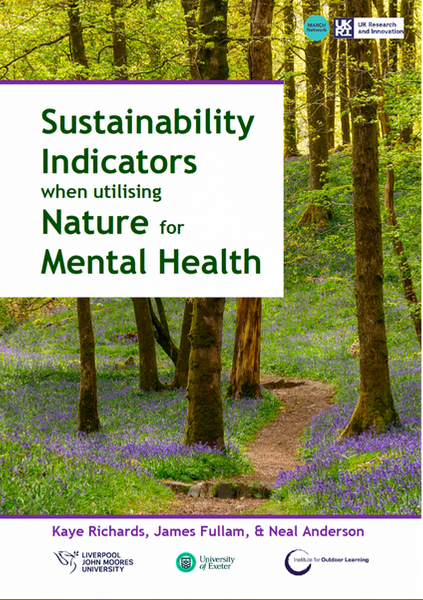
Explore a research informed framework with a carefully organised set of sustainability indicators in an easy-to-use self-assessment tool. The indicators can be used to review sustainability in relation to programme and participant impacts and outcomes across six key domains.
Positioning
- The identity and alignment of the organisation in an outdoor and mental health and wellbeing context.
Provision
- The actions and decisions concerning day-to-day delivery of an intervention or service.
Place
- The engagement and impact with the local environment and community.
Purpose
- How the intervention or service will achieve its stated outcomes.
Pathways
- The recruitment, engagement and next steps from the intervention or service.
Preparedness
- The capacity of the organisation to respond to major shocks or significant local events.

Download the Sustainability Indicators Model
Download the OMHI Model
The authors encourage widespread use of the model as a way to differentiate between three core zones of practice both outdoor professionals and psychological professionals may operate within whilst working outdoors.
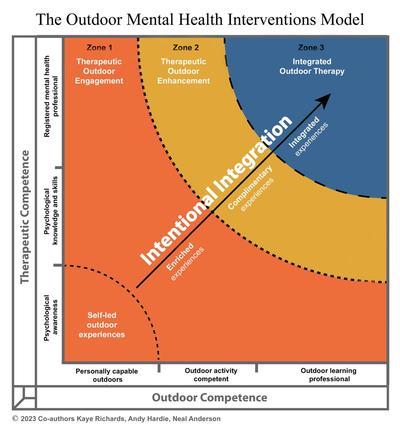
Cite: Richards, K., Hardie, A., & Anderson, N. (2023). Outdoor Mental Health Interventions and Outdoor Therapy: A Statement of Good Practice. (Version 2). Carlisle: Institute for Outdoor Learning
Theory of Change
Being clear about your theory of change is essential when providing mental health and well-being interventions in the outdoors.
A theory of change, quite simply, is the thinking (theory) behind the change a programme or service is intended to achieve. It makes very clear the rationale on which the work is based upon and offers a logical roadmap of what you will do, how you will do it, and why you will do it.
Find out more here...
Research and Reports
Richards, K., Fullam, J., & Anderson, N. (2023). Sustainability Indicators when utilising Nature for Mental Health (Version 1). Liverpool John Moores University and University of Exeter. DOI 10.5281/zenodo.8091976
Richards, K., Hardie, A., & Anderson, N. (2023). Outdoor Mental Health Interventions and Outdoor Therapy: A Statement of Good Practice. (Version 2). Carlisle: Institute for Outdoor Learning
Richards, K., Hardie, A., & Anderson, N. (2023) The Outdoor Mental Health Interventions Model: A UK statement of good practice in outdoor and adventure therapy. Journal adventure therapy, Year 4/2023 (9IATC/3GATE Proceedings – Special Edition), online
Anderson, N, Richards, K, & Hardie, A. (2021) PROFESSIONAL MATTERS Putting Ethics First: The outdoors and mental health and wellbeing. Horizons 93. Institute for Outdoor Learning, Carlisle.
Fullam, J., Hunt, H., Lovell, R., Husk, K., Byng, R., Richards, D., Bloomfield, Warber, W., Tarrant, M., Lloyd, J., Orr, N., Burns, L., & Garside, R. (2021). A handbook for Nature on Prescription to promote mental health. Volume 1, Version 1. University of Exeter.
Workforce Mental Health
It is essential that in the application of this model, mental health agendas are not simply seen from a beneficiary perspective. Mental health and well-being relates to all aspects of life and work, from the quality and safety of the physical environment, to how workers feel about the organisation and their work, the culture at work and their personal mental health, mental distress or mental illness. The model offers ways in which the mental health and well-being of the workforce can be supported using the benefits of the outdoors.
Psychological therapies have a longstanding commitment and requirement for reflective supervision of their practice with clients. This is personally supportive and protects the client by upholding high standards of effective, safe and ethical working. It has wider benefits for professionals, for example including the prevention of burnout. Engaging in regular supervision of practice with someone suitably experienced and competent is good practice for all roles and the benefits are a cornerstone to developing best practices in application of the model.
It is important that employees support those struggling with mental health or well-being, to remain in and ‘thrive at work’. So the model can offer ways in which the mental health and well-being of the workforce can be supported using the benefits of the outdoors; perhaps through self-care activities, or by engaging a professional therapeutic service. It also serves to remind us that as an outdoor workforce we are not exempt from the everyday stigma and challenges of mental health. So we need to approach and address our attitudes to across all aspects of the sector with the same care, concern and respect we aim to offer our clients.
'How to take care of your staff's mental health in your workplace’ is an accessible guide designed by Mind to help all employers to understand and implement the six core standards recommended. The AAIAC document ‘Surviving a Career in Adventure Activities’ outlines some key working practices and practical steps instructors can take to look after their physical and emotional safety.
OMHI Co-authors
Neal Anderson MSc QTLS UKCPReg POL is a UKCP Registered Psychotherapist and Supervisor in private practice and chair of a Psychotherapy and Counselling Association. He has been working in the outdoors with young people and adults since 1993 and has specialised in youth development, leadership training and promoting the value of the outdoors for individual and community health and wellbeing. He is an Associate Lecturer with the University of Cumbria and was the former Professional Standards Manager for the Institute of Outdoor Learning. Neal currently leads an international charity committed to ending all forms of inter-personal violence, abuse and harassment in sports environments globally.
Dr Kaye Richards (CPsychol) is a Chartered Psychologist of the British Psychological Society, qualified outdoor professional, experienced researcher, and Senior Lecturer in Psychology at Liverpool John Moores University. She is leading a new MA in Counselling & Outdoor Therapy, and previously led a BSc (Hons) in Outdoor Education. She has diverse experience of developing adventure and outdoor therapy, training outdoor professionals, and has worked at the British Association for Counselling and Psychotherapy facilitating national research activity in psychological therapies. She is the convenor of the academic Journal of Adventure Education & Outdoor Learning, and has published across associated interdisciplinary areas.
Andy Hardie PGDip, FPsych, MBACP(Accred), LPIOL is a Forensic Psychotherapist and Supervisor registered with the BPC and accredited with the BACP. He has worked as a Therapist in the private, public and third sectors with groups, adults and young people. He has worked extensively with a focus on personal development with youth and marginalised groups in the outdoors. Since 2015 he has been developing wilderness and outdoor therapy approaches in Scotland. He has developed and delivered undergraduate and postgraduate courses in Adventure Therapy and an MSc in Counselling and is now Clinical Director of a charity delivering mental health services across Scotland.
Acknowledgements
We would like to thank the following individuals and organisations for their recent dialogue, contribution, and support to some of the thinking and development of this statement:
- Dr Alison Greenwood, Dose of Nature, London.
- Dr Barbara Smith, CAMHS Alder Hey Children’s Hospital, Liverpool.
- Chris Frampton, South Lakeland Mind Outdoor Counselling Service, Kendal Therapy.
- Hayley Marshall, The Centre for Natural Reflection, Derbyshire.
- Lesley Dougan, Liverpool John Moores University.
- Mark de Bernhardt Lane, Aquafolium
- Mike Strang, Venture Trust, Scotland.
- Dr Neil Bindemann & Dr Rob Lawson, British Society of Lifestyle Medicine
- Outdoor Therapy workshop participants at the 2018 UK Outdoor Learning Sector Conference
- Outdoor Mental Health Interventions launch participants at the 2019 Sector Strategic Forum
- Dr Steff Revell, Otago Polytechnic, New Zealand.
- Stephan Natynczuk, Spare Crab Adventure.
Further Developments
Version 2 of the statement was issued in November 2023 and responded to requests for greater information on planning and providing outdoor therapy, advice on contraindications, additional knowledge and skills statements for the indicators of outdoor and therapeutic competence, and improvements to the descriptors of Indicators of Good Practice with ethics in mind.
Version 1.3 of the statement was issued in October 2020 and added “Outdoor Therapy” to the title; examples of the three zones of practice on page 5; and extra detail to the figures on page 7 to describe "Intentional Integration".
Version 1.2 of the statement was issued in January 2020 and added clearer guidance on applying the model on Page 11.
Version 1 of the statement was launched at the 2019 Sector Strategic Conference on October 3rd in Birmingham.
The authors welcome ongoing dialogue in developing this work, so please forward any wider comments and views to them via IOL
